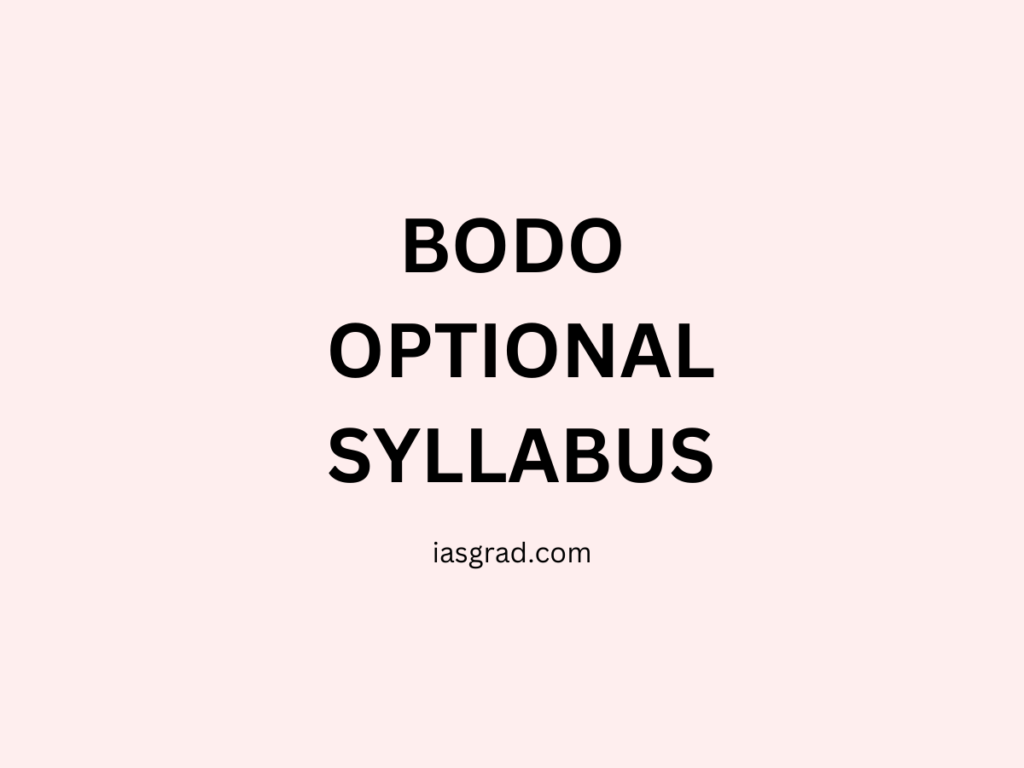Bodo Optional Syllabus
The Bodo Optional for the UPSC Civil Services Exam is an ideal choice for candidates with a strong foundation in the Bodo language and literature. The syllabus encompasses the historical evolution of the Bodo language, its grammar, and linguistic features, along with a comprehensive study of Bodo literature, including poetry, prose, and folk traditions. It allows aspirants to engage deeply with the cultural and literary heritage of the Bodo community. This post provides a detailed breakdown of the syllabus.
Paper I: Bodo Optional Syllabus
-
History of Bodo Language:
- Homeland, language family, its present status and its mutual contact with Assamese.
- phonemes : Vowel and Consonant Phonemes.
Tones. - Morphology : Gender, Case and Case endings, Plural suffix, Definitives, Verbal suffix.
- Vocabulary and its sources.
- Syntax : Types of sentences, Word Order.
- History of scripts used in writing Bodo Language since inception.
-
History of Bodo Literature:
- General introduction of Bodo folk Literature.
- Contribution of the Missionaries.
- Periodization of Bodo Literature.
- Critical analysis of different genre (Poetry, Novel, Short Story and Drama).
- Translation Literature.
Paper II: Bodo Optional Syllabus
-
Section A:
- Khonthai-Methai
(Edited by Madaram Brahma & Rupnath Brahma) - Hathorkhi-Hala
(Edited by Pramod Chandra Brahma) - Boroni Gudi Sibsa Arw Aroz : Madaram Brahma
- Raja Nilambar : Dwarendra Nath Basumatary
- Bibar (prose section)
(Edited by Satish Chandra Basumatary).
- Khonthai-Methai
-
Section B:
- Bibi Bithai (Aida Nwi) : Bihuram Boro
- Radab : Samar Brahma Chaudhury
- Okhrang Gongse Nangou : Brajendra Kumar Brahma
- Baisagu Arw Harimu : Laksheswar Brahma
- Gwdan Boro : Manoranjan Lahary
- Jujaini Or : Chittaranjan Muchahary
- Mwihoor : Dharanidhar Wary
- Hor Badi Khwmsi : Kamal Kumar Brahma
- Jaolia Dewan : Mangal Singh Hozowary
- Hagra Guduni Mwi : Nilkamal Brahma
